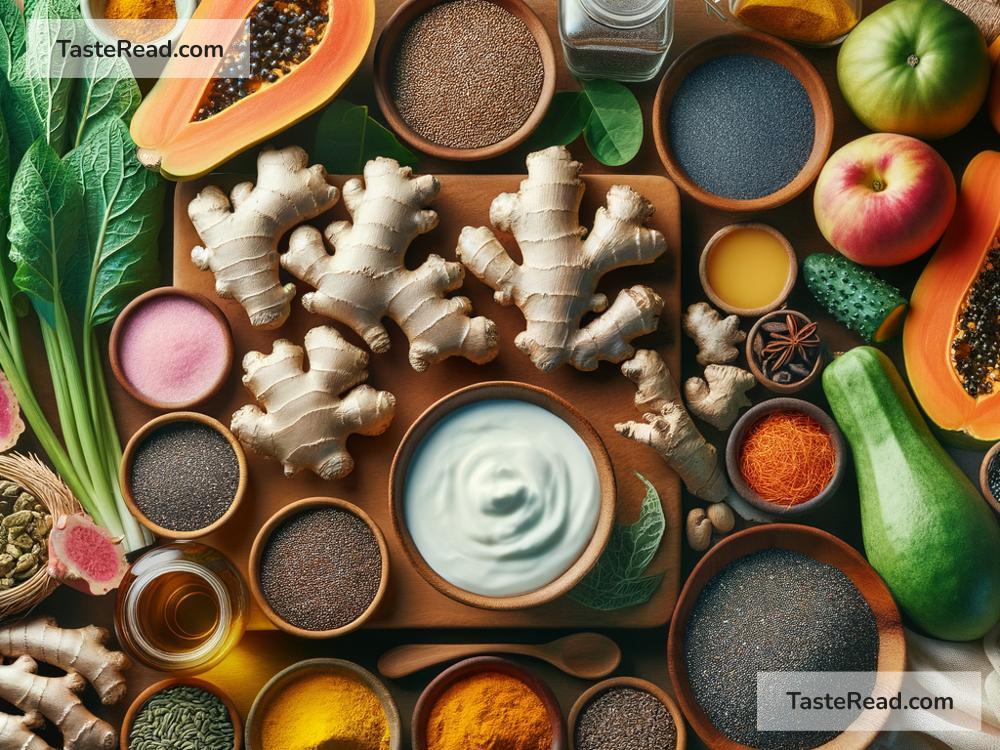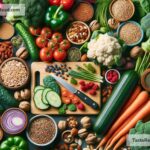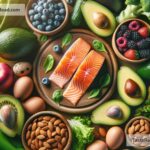Foods for Improving Digestion: Simple Ways to Feel Better
Having trouble with digestion? You’re not alone. Many people face issues like bloating, constipation, or discomfort after eating. The good news is that certain foods can make digestion easier and help you feel better. These foods work by supporting your stomach, intestines, and overall digestive health. Let’s explore how you can improve your digestion with simple, everyday foods.
Why Is Good Digestion Important?
Your digestion is the process your body uses to break down food and turn it into energy. When your digestion is smooth, you feel energized, clear-headed, and healthy. However, poor digestion can leave you feeling sluggish, bloated, or uncomfortable. Untreated digestive issues can even lead to more serious problems over time, like nutrient deficiencies or chronic discomfort. That’s why taking care of your digestive system is so important.
Top Foods for Better Digestion
Here are some excellent foods you can add to your diet to help your digestive system work better.
1. Fiber-Rich Foods
Fiber is essential for good digestion because it keeps everything moving smoothly through your digestive tract. Fiber can be grouped into two types:
- Soluble fiber dissolves in water and helps soften stools, making them easier to pass.
- Insoluble fiber adds bulk to stools and helps food move quickly through your intestines.
Good sources of fiber include:
– Whole grains like oatmeal, brown rice, and whole-wheat bread.
– Fruits such as apples, pears, and berries.
– Vegetables like broccoli, carrots, and leafy greens.
– Legumes like lentils, chickpeas, and black beans.
These foods help prevent constipation and keep your gut happy.
2. Probiotic Foods
Probiotics are live bacteria and yeast that are good for your gut. They improve digestion by balancing the bacteria in your intestines, reducing bloating, and improving nutrient absorption.
Probiotic-rich foods include:
– Yogurt with live cultures.
– Kefir, a type of fermented drink.
– Sauerkraut and kimchi, fermented vegetables.
– Miso and tempeh, made from fermented soybeans.
Adding these foods to your diet can promote a healthy gut.
3. Foods High in Prebiotics
Prebiotics are types of fiber that feed the probiotics in your gut, helping them thrive. In other words, they are food for the good bacteria in your digestive system.
Common prebiotic foods include:
– Bananas.
– Onions and garlic.
– Asparagus.
– Leeks.
– Whole grains.
Eating prebiotic foods helps probiotics work more effectively, improving your overall digestion.
4. Healthy Fats
Not all fats are bad for you. Healthy fats are crucial for digestion because they help your body absorb nutrients, especially vitamins like A, D, E, and K. They can also reduce inflammation in the gut.
Sources of healthy fats include:
– Avocados.
– Nuts, especially almonds and walnuts.
– Seeds like chia seeds and flaxseeds.
– Olive oil and fatty fish like salmon.
Adding these fats to your meals in moderation can make a big difference.
5. Water
Sometimes, the simplest solution is the most effective. Water is key for digestion because it helps soften stools and prevents constipation. Staying hydrated ensures your intestines stay healthy and work smoothly.
Make it a habit to drink enough water throughout the day. If you find plain water boring, try adding lemon slices or drinking herbal teas to keep things interesting.
6. Ginger
Ginger is a natural remedy for many digestive issues, including nausea, bloating, and stomach cramps. It works by speeding up the movement of food through your stomach and intestines.
You can use ginger in several ways:
– Sip ginger tea after meals.
– Add fresh ginger to smoothies or stir-fries.
– Chew on a small piece of ginger for quick relief.
It’s a simple, yet effective way to improve digestion.
7. Fennel
Fennel seeds and bulbs are fantastic for easing digestive discomfort. They can reduce bloating and gas while relaxing the muscles in your digestive tract.
Try fennel tea or add fennel seeds to dishes for better digestion. You can also eat raw fennel slices as part of a salad or snack.
8. Papaya and Pineapple
Both papaya and pineapple contain enzymes that support digestion. Papaya has an enzyme called papain, which helps break down proteins. Pineapple contains bromelain, another enzyme that assists with protein digestion and reduces inflammation.
Enjoy these fruits fresh or as part of a smoothie to give your digestion a boost.
Tips for Better Digestion
While choosing the right foods is important, don’t forget to follow these simple habits to help your digestion:
– Chew your food thoroughly: Digestion starts in your mouth, so take your time eating.
– Eat smaller portions: Large meals can overwhelm your digestive system.
– Stay active: Exercise helps your intestines move food through your body.
– Limit processed foods: Chips, sugary snacks, and fast food can slow down digestion.
– Avoid overeating: Eating too much can lead to discomfort and bloating.
Final Thoughts
Improving your digestion doesn’t have to be complicated. By adding fiber, probiotics, healthy fats, and other gut-friendly foods to your meals, you’ll feel more comfortable and get the nutrients your body needs. Pair these foods with healthy habits like staying hydrated and active, and soon you’ll notice a big difference.
Your stomach and gut will thank you for making digestion a priority. Start small, but stay consistent—and enjoy feeling your best!


